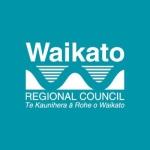Report targets areas of concern for Waikato soil and water
Improving the environmental sustainability of the Waikato’s key agricultural sector is the aim of a major new report on rural soil and water issues produced by Environment Waikato.
The condition of rural water and soil in the Waikato region: risks and opportunities shows:
· Water quality is deteriorating further because of significant extra nutrient leaching and run-off from farms.
· Contamination from various sources means nearly 70 per cent of sampled regional rivers and streams may be unsafe to swim in, while water may be unsafe for stock to drink in 75 per cent of monitored waterways.
· The on-going use of phosphate fertilisers has, in some Waikato soils, led to a gradual build-up of cadmium and fluorine. That has potential long-term future implications for future land use versatility.
Environment Waikato has produced the report, to help raise awareness of environmental issues in the region and to stimulate public discussion on how these are best responded to. “This will help ensure agriculture’s future economic viability and that land can continue to be used in a flexible way,” said chairman Peter Buckley.
The report has been tabled and formally received today by the council’s environment committee.
The document highlights how multi-sector co-operation – such as that envisaged in the Waikato-Tainui settlement - will be very important to providing solutions that both support a strong farming sector and protect the environment on an ongoing basis.
“Farmers and other rural sector operators are already taking significant steps to limit their impact on the environment, and deserve a great deal of credit for this,” said Cr Buckley, a dairy farmer and former president of Waikato Federated farmers.
“But the reality is that there are still many serious issues that need to be addressed on an ongoing basis at both current and anticipated levels of agricultural activity.
“Trends towards more intensive land use mean it’s likely there will need to be significant changes in farming practice if we are to protect the quality of Waikato waterways.
“Water quality is likely to get worse before it gets better, and more effort from everyone and more research is required to achieve our long-term goal of making improvements. If we are to both maximise regional economic performance and ensure kiwis can still enjoy a great outdoor way of life in the region, we must strike the right balance.
”If we don’t get the balance right there’s a longer-term risk of the environment deteriorating to the point where the public demands tough measures to fix things.”
Environment committee chairman Jane Hennebry said the report from EW staff provides a frank assessment of current problems, looks at their potential economic and environmental impacts, outlines what steps are being taken to sort things out, and looks at future risks.
“We hope that by putting together this report we will provide all Waikato people with the information they need to take part in discussions on our key economic and environmental issues.
“Given the importance of the Waikato agricultural sector, particularly dairying, to the New Zealand economy the issues are also of clear national interest.
“One of the most important themes that comes across is that everyone – including farmers, primary industries, scientists, iwi and local and central government - needs to continue to co-operate closely on addressing the issues,” Cr Hennebry said.
Cr Buckley said: “There’s some great work being done to limit agriculture’s impact on the environment, and to find new ways of farming smarter, so that natural resources are better protected. But the scale of the problems is such that we all need to increase our efforts to ensure the correct strong economy-strong environment balance is met.”
The full report is available online at http://ew.govt.nz/waterandsoilreport
